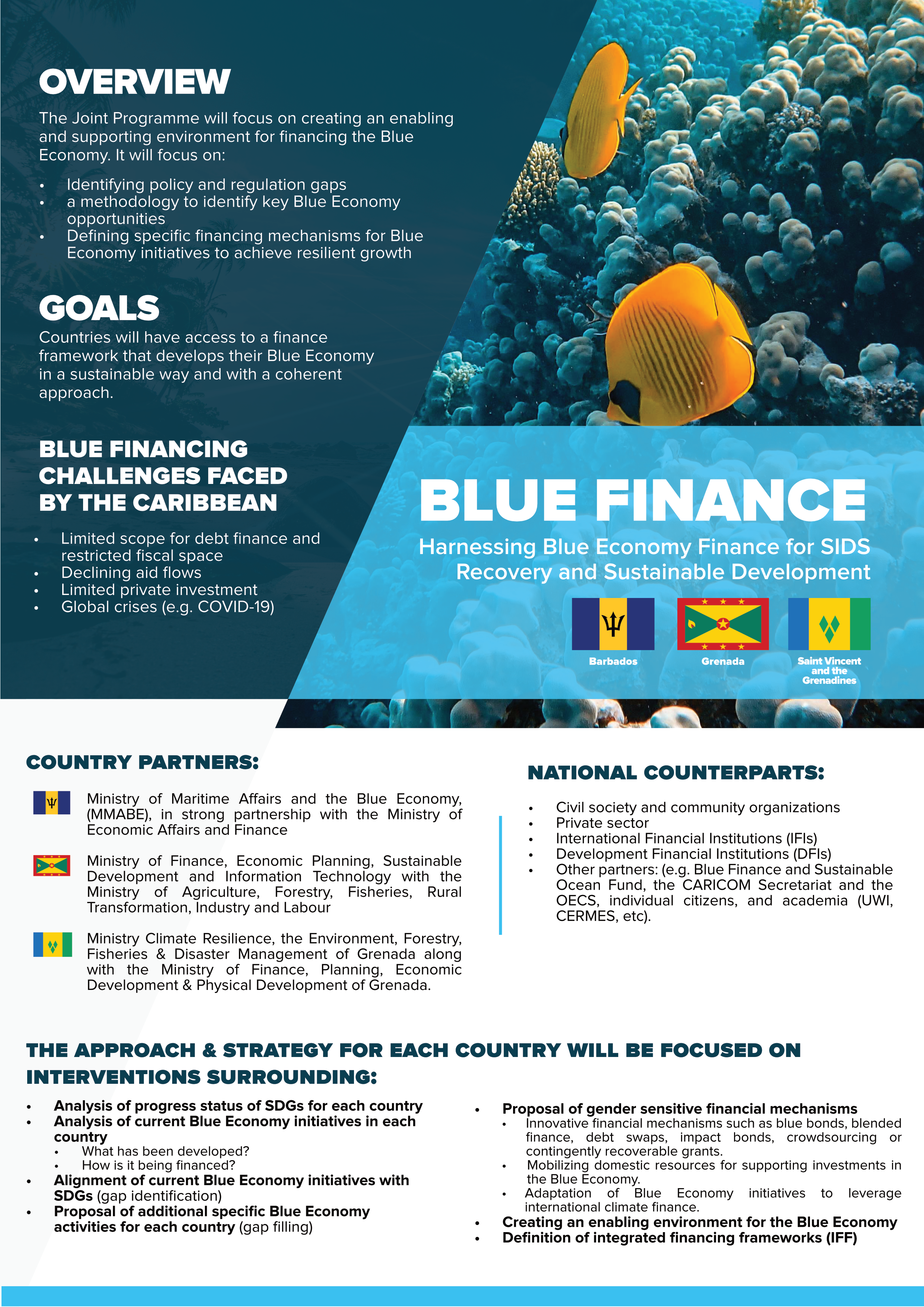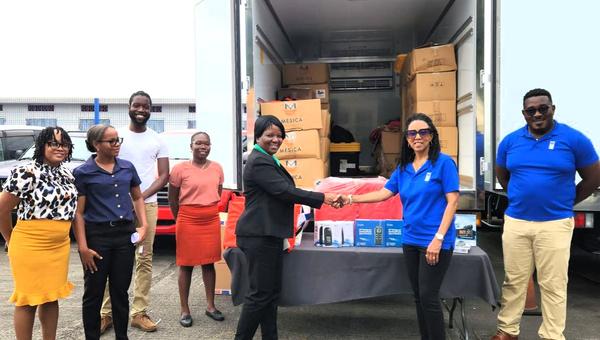SDG Fund Joint Programme: Blue Finance

The Coronavirus (COVID-19) pandemic has exacerbated the vulnerabilities of Small Island Developing States (SIDS). The global health crisis has impacted the socio-economic pillars of very dependent societies. Gross Domestic Product (GDP) losses in the Eastern Caribbean will surpass two digits in almost all countries. The rise of extreme poverty and unemployment and the damage to Micro, Small and Medium Enterprises (MSMEs) will be significant, especially in the tourism and ancillary sectors: empty piers with no cruise ships, flights cancellations, hotels closures and empty restaurants leave fishermen, farmers, cleaning personnel, cooks and taxi drivers -and many other traders- without income other than government cash transfers, where they exist and while they last. The Blue Economy Strategies are amongst the most promising approaches to support SIDS economic structuring transformation to build resiliency to exogenous shocks, including natural disasters, manmade or financial crises, global viral pandemics, while preserving their natural heritage.
Using the Blue Economy as an integral driver for resilient economic recovery and growth in the Eastern Caribbean, the Joint Programme’s emphasis will be on the development of an enabling and supporting environment for financing the Blue Economy, through different measures: the identification of policy and regulation gaps, a methodology to identify key Blue Economy opportunities, and the definition of specific financing mechanisms for Blue Economy initiatives to achieve resilient growth. Barbados, Grenada and Saint Vincent and The Grenadines are three countries at the vanguard of the Blue Economy “wave” and therefore offer a conducive environment to the success of the Blue Finance proposal. Integral SDG support from the United Nations (UN) provides the policy and planning background to this initiative.
The Joint Programme (JP) aptly titled "Harnessing Blue Economy Finance for SIDS Recovery and Sustainable Development" will address the current financial challenges of the beneficiary countries including the additional financial burden arising from the COVID-19 pandemic. Additionally, the three countries will benefit from upscaling the UN’s existing initiatives with the private sector, through the establishment of a public-private consortium for blue investment. This partnership aims to leverage substantial resources from the private sector, in addition to the development finance provided by International Financial Institutions (IFIs) (CDB, IDB, World Bank and EIB[1]) who have significant and structured investments in the region in the Blue Economy sector, and beyond.
The JP builds on the existing initiatives that Participating UN Organisations (PUNOs) have in the Eastern Caribbean on Blue Economy and other SDGs related areas. The JP model and best practices may be the basis for future upscaling of this intervention to the rest of the Eastern Caribbean.
[1] Caribbean Development Bank – CDB, InterAmerican Development Bank -IDB and European Investment Bank - EIB

 Locations
Locations





